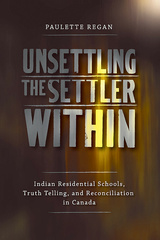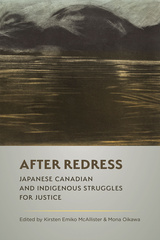Our shopping cart is currently down. To place an order, please contact our distributor, UTP Distribution, directly at utpbooks@utpress.utoronto.ca.

Reconciling Truths
Reimagining Public Inquiries in Canada
Reconciling Truths explores the role and implications of commissions such as Canada’s Truth and Reconciliation Commission and the National Inquiry into Missing and Murdered Indigenous Women and Girls, particularly their limits and possibilities in an era of reconciliation with Indigenous peoples. Since before Confederation, colonial governments have used this legal mechanism to address deep societal challenges. Whether it is a public inquiry, truth commission, or royal commission, the chosen leadership and processes fundamentally affect its ability to achieve its mandate. Kim Stanton provides in-depth critical analysis of these factors to offer practical guidance on how an inquiry can do more than have its recommendations quietly gather dust on a shelf. She argues that even if recommendations are initially ignored, holding an inquiry can create a dialogue about issues of public importance that prepares the way for attitudinal change and policy development.
As a forthright examination of the institutional design of public inquiries, Reconciling Truths acknowledges the risks inherent in their use. It also affirms their potential to shift the dominant Canadian narrative over time.
This book will be invaluable to scholars and students of law and socio-legal studies, Indigenous studies, public administration and social policy, sociology, and history, as well as to legal practitioners, public policy analysts, and activists. Increased use of commissions of inquiry across jurisdictions with similar colonial legacies will also ensure interest in countries such as Australia and New Zealand.
Awards
- 2022, Shortlisted - Balsillie Prize for Public Policy
Public inquiries have often been appointed to examine troubled aspects of Canada’s treatment of Indigenous peoples. Kim Stanton’s insights into what has worked and what has not offer valuable guidance on how to create an inquiry that will truly contribute to reconciliation. Her comprehensive and meticulous analysis shows how the very process of an inquiry contributes to greater public acceptance of its recommendations (or, unfortunately, skepticism about them), even before the inquiry has written its report. She thus offers an important lesson for governments, inquiries, and the public on how to ensure the success of any future inquiry that deals with colonial harms inflicted upon Indigenous peoples.
Stanton... provide[s] practical suggestions for future investigations.
Kim Stanton has expertly distilled the lessons learned from a number of Canadian commissions of inquiry since 1882, providing the first analysis not only of the Mackenzie Valley Pipeline Inquiry of 1974 but of the National Inquiry into Missing and Murdered Indigenous Women and Girls of 2015. This is an incisive and very important work.
Reconciling Truths is a textured, layered, and compelling account of the immense importance as well as the limitations of public inquiries. Beautifully written and convincingly argued, it deftly moves from conceptual analysis to descriptive illustration, from the personal to the historical and political, and from legal detail to wider social issues. An invaluable resource.
Kim Stanton is a lawyer, a former legal director of the Women’s Legal Education and Action Fund (LEAF), and a senior fellow of Massey College at the University of Toronto. Her legal practice in British Columbia and Ontario has focused on constitutional and Aboriginal law.
Introduction: Setting the Context
1 Inquiries in Canada
2 The Mackenzie Valley Pipeline Inquiry
3 Inquiries and Residential Schools
4 Canada’s Truth and Reconciliation Commission
5 Inquiries and the Crisis of Missing and Murdered Indigenous Women and Girls
Conclusion
Epilogue
Appendix: Chronological List of Referenced Canadian Commissions
Notes; Selected Bibliography; Index











